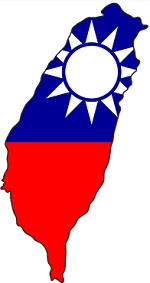An effort to reassure investors after Taipei-based OBI Pharma posted disappointing clinical trial results on breast cancer candidate OBI-822/82 has apparently backfired for the head of Taiwan's lead science research agency after reports his daughter is a top shareholder.
 Legislators from the outgoing Kuomintang Party have said Academia Sinica President Wong Chi-huey was a "disgrace" on Taiwan's academic reputation and should resign as he failed to declare his daughter Wong Yu-hsiu was the 10th biggest shareholder in OBI as he commented that the trial results were not a complete failure, the China Post reported.
Legislators from the outgoing Kuomintang Party have said Academia Sinica President Wong Chi-huey was a "disgrace" on Taiwan's academic reputation and should resign as he failed to declare his daughter Wong Yu-hsiu was the 10th biggest shareholder in OBI as he commented that the trial results were not a complete failure, the China Post reported.
Last month, the company said that the candidate did not meet the primary efficacy endpoint in a Phase II/III study, but that it showed improvement in progression-free survival and the secondary endpoint of overall survival "is trending towards statistical significance."
It added that full trial results will be released at an unspecified international conference and that it hoped to move to a global Phase III study.
The shares plunged on that news in a selloff that caught the attention of the country's Financial Supervisory Commission after 500,000 shares changed hands within days of the Feb. 21 announcement.
Academia Sinica's Wong, an adviser to many companies in the biotech research space, had reportedly advised shareholders that the results still showed promise for the candidate, helping the share price stabilize around 400 New Taiwan dollars ($12.27) each from levels well above 600 New Taiwan dollars before the announcement.
But Wong apparently did not disclose any interest in the company, according to a report in widely read Next Magazine, or that his daughter received 3 million OBI Pharma shares from subsidiaries of Ruentex Financial Group, the China Post said.
The China Post said that in a statement, OBI Chairman Michael Chang confirmed that before the company's shares were listed, Wong's daughter had been a major shareholder, and that was publicly disclosed.
Taiwan is in the process of a political transition with president-elect, Tsai Ing-wen of the Democratic Progressive Party who won office in January, scheduled to take up her post in May.
She and outgoing President Ma Ying-jeou have talked of biotech as a pillar of new economic growth in Taiwan.
- here's the story from the China Post